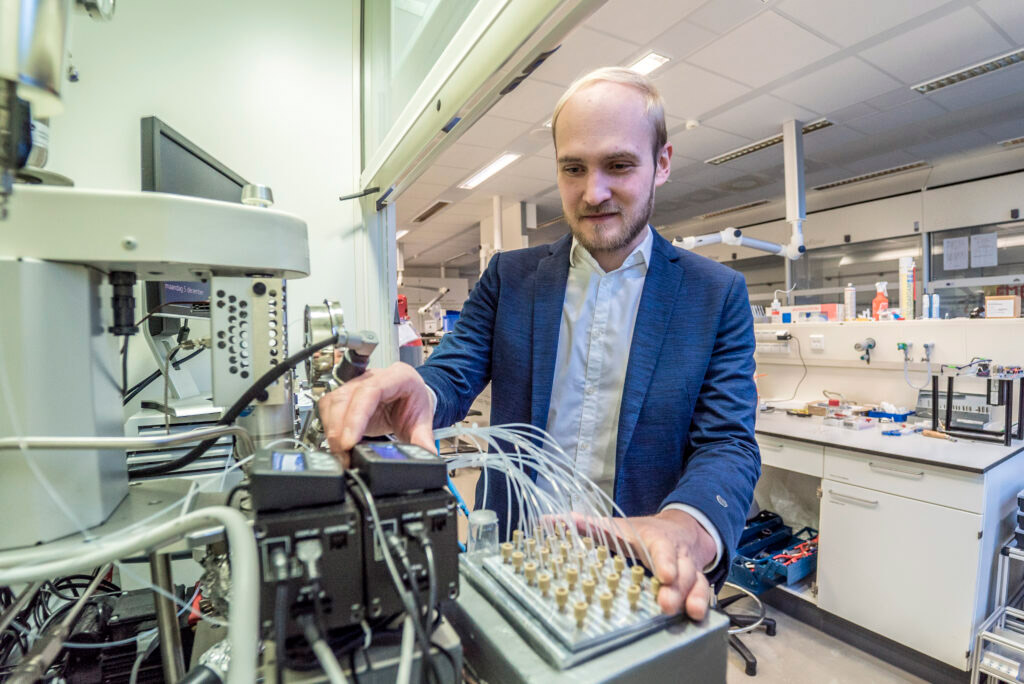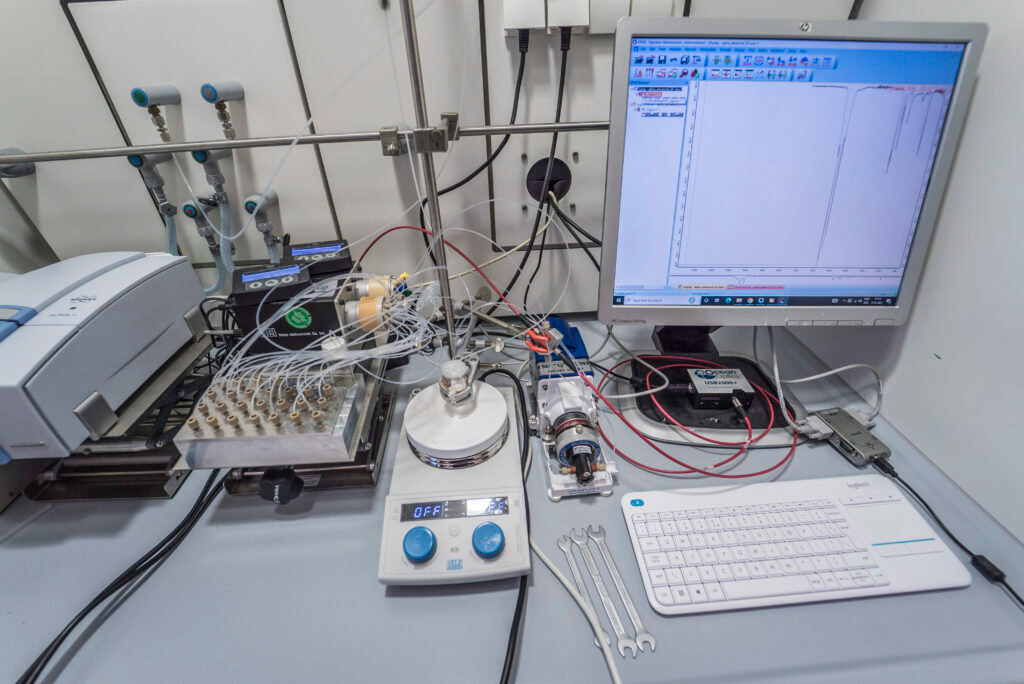Evgeny Uslamin and Robbert van Putten are alumni of the TU Delft. They are very familiar with the time it takes to do research in the field of chemistry. Then, they had an idea to automate the monitoring of catalytic systems: processes that produce high-value fine chemicals and pharmaceuticals that use catalysts to speed up chemical reactions. So they started CyberHydra, currently an early-stage startup that developed a patented technology automating these processes.
An automated reactor
Doing research in fine chemicals and pharmaceuticals often comes with long horizons. The work can be tedious, as researchers closely monitor every process step. For this reason, researchers spend much time in their laboratories. Automation can improve the consistency and efficiency of the production process and reduce the need for manual labor. It allows highly-qualified experts to focus on more creative work and to innovate faster.

The co-founders of CyberHydra worked to develop a system that would automate processes and have software to analyze the results, aided by master student Nathan Jiscoot. They recognized their system’s potential to help other researchers and companies become more efficient in their research. Then, with help from Delft Enterprises, they applied for a patent for their solution. It was a vital step that boosted an idea to start a company.
Evgeny Uslamin: “As a post-doc, you have tremendous amounts of work to do. You might call us lazy, but we didn’t want to sit beside a reactor all day. So, Robbert and I started looking for a solution to help us be more efficient and get more work done. It led to the innovative idea of CyberHydra.”
We started looking for a solution to help us be more efficient and get more work done. It led to the innovative idea of CyberHydra.
From convenient idea to commercial product
CyberHydra works with the fine-chemical and pharmaceutical industries, especially those companies’ R&D laboratories. Also, they work with academia, as there is a general need for effective experimentation and more high-quality data in the chemistry and pharmaceutical fields.

To get more knowledge on business aspects, the co-founders started with the ‘ready to startup’ course from YES!Delft students. After completing the ‘ready to startup’ course from YES!Delft students, they moved on to the validation lab and followed the accelerator program. CyberHydra learned a lot from the YES!Delft community. The combination of all kinds of different expertise is inspiring and helpful. In addition, the programs helped to get their problem-solution proposition just right.
The end game: data-driven and efficient processes
The ultimate goal of CyberHydra is to accelerate chemical research by introducing data-driven practices. CyberHydra is still in the validation phase of their product, as they want more customers to test it. The first system was built partly using a 3D printer. Some parts were vibrant pink simply because it was the only color available. The current pilot projects look promising: using the system has already saved money and the time of qualified researchers. Advancing science by automating it saves time and helps accelerate science.
Evgeny Uslamin: “Delivering the first system was quite exciting. Suddenly you see something you spend much time developing in a completely different environment. Other researchers know to use your equipment and benefit from your solution; that’s very nice.”
Delivering the first system was quite exciting. Suddenly you see something you spend much time developing in a completely different environment.
CyberHydra has received the Take-off Phase 1 grant from the NWO. Because CyberHydra is a spin-off of Delft University, the University is a shareholder and has provided funds and resources. So far, they have primarily used public funds to develop the product, even though there have been a couple of paid pilot projects.
Steps for the upcoming 12 months
In the upcoming year, CyberHydra will raise more funding, either through more public funding or through investors, to expand the team and finalize the development of the product. They plan to conduct a few more pilot projects and use customer feedback to improve their product. CyberHydra expects to be ready with a marketable product this year: the current product already works but anticipates some improvements in the user experience and the software interface.
Nathan Jiscoot: “Many students are interested in creating innovative technology in the chemical and pharmaceutical industry but sometimes are hesitant to work at a startup. Try it out: if you don’t like it, you can always do something else. Take some time to work at a startup if you are interested. Validate your own life.”
Many students are interested in creating innovative technology but sometimes are hesitant to work at a startup. Try it out: if you don’t like it, you can always do something else. Validate your own life.
Your dream can become a reality too
As long as you want to make a change, don’t miss the opportunity to boost your startup by joining the YES!Delft Validation Lab or Accelerator Program. However, if working for a startup resonates more with your ambition, we got you! Check out vacancies placed by our startups.
Be the change, as change starts with you!




